detail profile james baldwin

Riwayat Hidup
James Arthur Baldwin was an African-American novelist, essayist, playwright, poet, and social critic.
His essays, as collected in Notes of a Native Son, explore palpable yet unspoken intricacies of racial, sexual, and class distinctions in Western societies, most notably in mid-20th-century America, and their inevitable if unnameable tensions.
Info Pribadi
Peran Yang Di Mainkan James Baldwin
 Preeminent West African curator and scholar...
Preeminent West African curator and scholar...BLKNWS: Terms & Conditions 2025
Preeminent West African curator and scholar Funmilayo Akechukwu’s magnum opus, The Resonance Field, leads her to the heart of the Atlantic Ocean, drawing a journalist into a journey that shatters her understanding of consciousness and time.
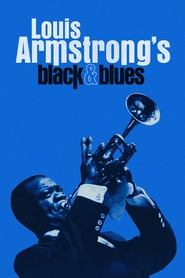 An intimate and revealing look at...
An intimate and revealing look at...Louis Armstrong's Black & Blues 2022
An intimate and revealing look at the world-changing musician, presented through a lens of archival footage and never-before-heard home recordings and personal conversations. This definitive documentary honors Armstrong's legacy as a founding father of jazz, one of the first internationally known and beloved stars, and a cultural ambassador of the United States.
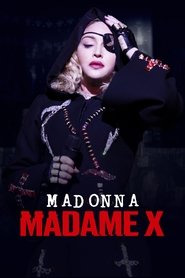 Filmed in Lisbon Portugal the film...
Filmed in Lisbon Portugal the film...Madonna: Madame X 2021
Filmed in Lisbon, Portugal, the film captures the pop icon’s rare and rapturous tour performance, hailed by sold out theatrical audiences worldwide. The unprecedented intimate streaming experience will take viewers on a journey as compelling and audacious as Madonna’s fearless persona, Madame X, a secret agent traveling around the world, changing identities, fighting for freedom and bringing light to dark places.
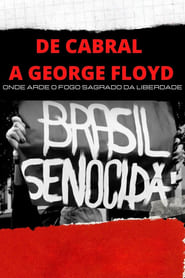 Through clippings the film draws a...
Through clippings the film draws a...De Cabral a George Floyd: Onde Arde o Fogo Sagrado da Liberdade 2020
Through clippings, the film draws a narrative line between the construction of racism in Brazil and the United States, having as base the European invasion of the continent, police violence, the genocide of the black people, the massacre of indigenous peoples, religious violence, the criminalization of funk music, structural racism in art and education, the importance of quota policy and the need urgent historical repair as a commitment by the Brazilian state to the black people.
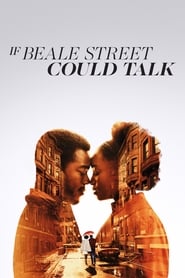 After her fiance is falsely imprisoned...
After her fiance is falsely imprisoned...If Beale Street Could Talk 2018
After her fiance is falsely imprisoned, a pregnant African-American woman sets out to clear his name and prove his innocence.
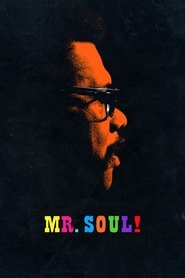 On the heels of the Civil...
On the heels of the Civil...Mr. SOUL! 2018
On the heels of the Civil Rights Movement, one fearless black pioneer reconceived a Harlem Renaissance for a new era, ushering giants and rising stars of black American culture onto the national television stage. He was hip. He was smart. He was innovative, political, and gay. In his personal fight for social equality, this man ensured the Revolution would be televised. The man was Ellis Haizlip. The Revolution was soul!
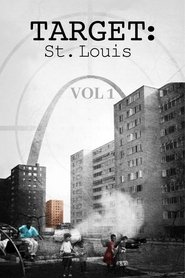 TARGET ST LOUIS Vol 1 tells the...
TARGET ST LOUIS Vol 1 tells the...Target: St. Louis Vol. 1 2018
TARGET ST. LOUIS Vol. 1© tells the story of how the United State Military conducted secret chemical testing on citizens of St. Louis's Northside. Told through the eyes of the survivors who bravely share their experiences of being unwitting test subjects. Long before the current scandal of lead poisoning of the water supply of Flint, Michigan, the United States Army conducted secret experiments on unknowing residents of northern St. Louis using toxic chemicals. The predominantly African American residents of northern St. Louis are the focus of this film. "Target: St Louis Vol. 1" shares their disturbing story of how these Cold War experiments occurred and the film examines the actions of the US Military that extended beyond the guarantees of public safety promised to US citizens by the Constitution.
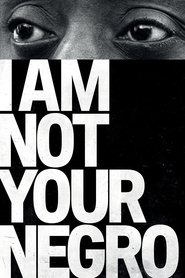 Working from the text of James...
Working from the text of James...I Am Not Your Negro 2017
Working from the text of James Baldwin’s unfinished final novel, director Raoul Peck creates a meditation on what it means to be Black in the United States.
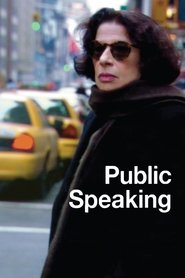 A featurelength documentary starring Fran Lebowitz...
A featurelength documentary starring Fran Lebowitz...Public Speaking 2010
A feature-length documentary starring Fran Lebowitz, a writer known for her unique take on modern life. The film weaves together extemporaneous monologues with archival footage and the effect is a portrait of Fran's worldview and experiences.
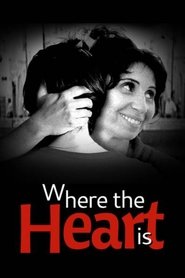 From the director of Marius et...
From the director of Marius et...Where the Heart Is 1998
From the director of Marius et Jeannette, this story of two working-class families is a fable with an optimist streak. A young black man, Francois, is wrongly accused of rape by a racist policeman. The story is told in voiceover by his childhood friend, neighbor, and the mother of his future child, Clementine, who is white. The city is Marseilles as in the previous film, symbolic with its churches, prisons and ruins. Except in this film, director Robert Guediguian also ventures outside, taking the story to Sarajevo; two different cities, one devastated by war, the other by a bad economy and unemployment. A la Place du coeur won a Special Jury Prize at the 1998 San Sebastian Film Festival and was also shown at the 1998 Toronto Film Festival and the 1998 Montreal Film Festival.
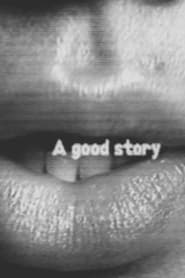 The film utilizes the storytelling format...
The film utilizes the storytelling format...Toc Storee 1992
The film utilizes the story-telling format to create a multilevel narrative that explores the relations between speech, language, and desire. Addresses issues of sexuality, subjectivity, tradition, and identity in gay Asian contexts.
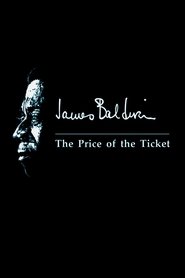 James Baldwin was at once a...
James Baldwin was at once a...James Baldwin: The Price of the Ticket 1989
James Baldwin was at once a major 20th century American author, a Civil Rights activist and, for two crucial decades, a prophetic voice calling Americans, black and white, to confront their shared racial tragedy.
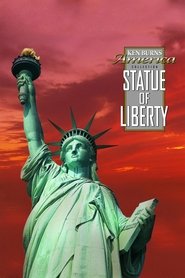 For more than 100 years the Statue...
For more than 100 years the Statue...The Statue of Liberty 1985
For more than 100 years, the Statue of Liberty has been a symbol of hope and refuge for generations of immigrants. In this lyrical, compelling and provocative portrait of the statue, Ken Burns explores both the history of America’s premier symbol and the meaning of liberty itself. Featuring rare archival photographs, paintings and drawings, readings from actual diaries, letters and newspapers of the day, the fascinating story of this universally admired monument is told. In interviews with Americans from all walks of life, including former New York governor Mario Cuomo, the late congresswoman Barbara Jordan and the late writers James Baldwin and Jerzy Kosinski, The Statue of Liberty examines the nature of liberty and the significance of the statue to American life. Nominated for both the Academy Award ® and the Emmy Award ®, The Statue of Liberty received the prestigious CINE Golden Eagle, the Christopher Award and the Blue Ribbon at the American Film Festival.
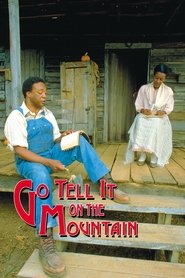 This film adaptation of James Baldwins...
This film adaptation of James Baldwins...Go Tell It on the Mountain 1985
This film adaptation of James Baldwin's celebrated novel tells the journey of a family from the rural South to "big city" Harlem seeking both salvation and understanding and of a young boy struggling to earn the approval of a self-righteous and often unloving stepfather.
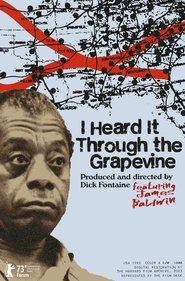 Renowned Black writer James Baldwin retraces...
Renowned Black writer James Baldwin retraces...I Heard It Through the Grapevine 1982
Renowned Black writer James Baldwin retraces his time in the South during the Civil Rights Movement, reflecting with his trademark brilliance and insight on the passage of more than two decades. From Selma and Birmingham and Atlanta; to the battleground beaches of St. Augustine, Florida, with Chinua Achebe; and back north for a visit to Newark with Amiri Baraka, Baldwin lays bare the fiction of progress in post–Civil Rights America, wondering “what happened to the children” and those 'who did not die, but whose lives were smashed on Freedom Road'.
 In Istanbul American writer James Baldwin...
In Istanbul American writer James Baldwin...James Baldwin: From Another Place 1973
In Istanbul, American writer James Baldwin muses about race, the American fascination with sexuality, insights into his interrupted writing decade in the country, the generosity of the Turks, and how being in another country, in another place, forces one to re-examine well-established attitudes about modern society.
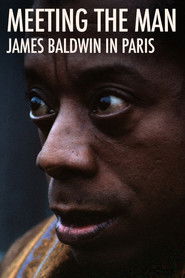 In 1970 a British film crew set...
In 1970 a British film crew set...Meeting the Man: James Baldwin in Paris 1971
In 1970, a British film crew set out to make a straightforward literary portrait of James Baldwin set in Paris, insisting on setting aside his political activism. Baldwin bristled at their questions, and the result is a fascinating, confrontational, often uncomfortable butting of heads between the filmmakers and their subject, in which the author visits the Bastille and other Parisian landmarks and reflects on revolution, colonialism, and what it means to be a Black expatriate in Europe.
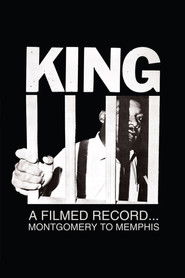 Constructed from a wealth of archival...
Constructed from a wealth of archival...King: A Filmed Record... Montgomery to Memphis 1970
Constructed from a wealth of archival footage, the documentary follows Dr. Martin Luther King, Jr. from 1955 to 1968, in his rise from regional activist to world-renowned leader of the Civil Rights movement. Rare footage of King's speeches, protests, and arrests are interspersed with scenes of other high-profile supporters and opponents of the cause, punctuated by heartfelt testimonials by some of Hollywood's biggest stars.
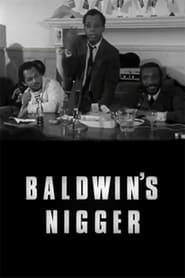 James Baldwin and Dick Gregory discuss...
James Baldwin and Dick Gregory discuss...Baldwin's Nigger 1968
James Baldwin and Dick Gregory discuss the Civil Rights Movement in 1960s Great Britain.
